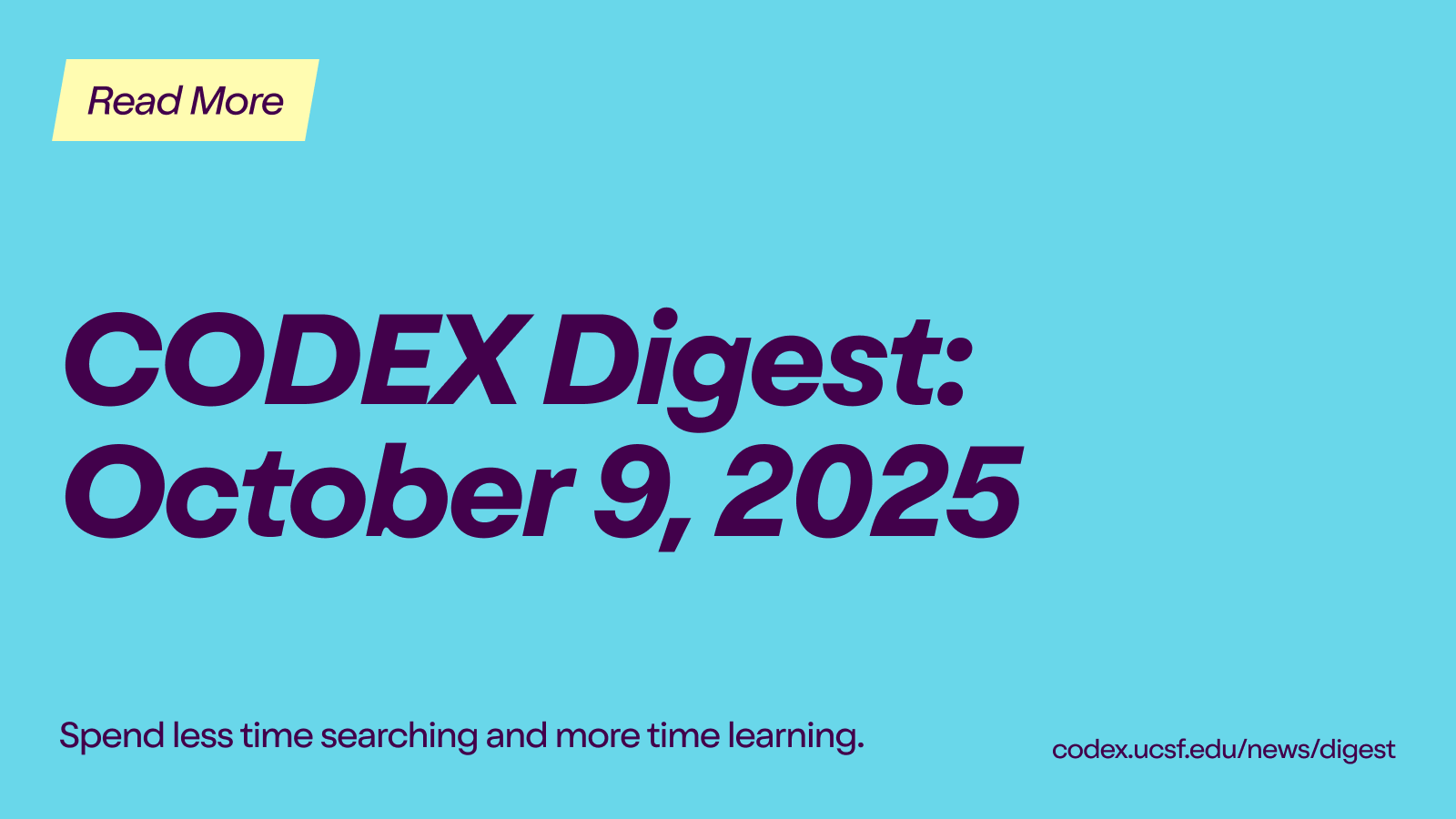CODEX Digest - 10.9.25
Want this delivered straight to your inbox every Thursday? Subscribe now.
This week's digest features a look at appendicitis from a malpractice perspective, an evaluation of e-triggers using machine learning, and the fatal outcomes associated with different definitions of late and delayed HIV diagnoses. Also highlighted are concrete strategies and frameworks for improving diagnostic equity and reducing incivility in medical education and in healthcare teams.
Here are this week's must-reads:
Titles link to the PubMed record or free-to-access sites with full text availability.
Screening programmes and breast cancer mortality: an observational study of 194 countries.
Al Hasan SM, Bennett DL, Toriola AT. Bull World Health Organ. 2025;103(8):470-483.
Screening programs are an established mechanism for timely cancer diagnosis and mortality reduction. This study examined the worldwide impact of national breast cancer screening initiatives over a six-year period. Countries with regular screening programs had significant reduction in breast cancer mortality.
The diagnostic uncertainties and legal precedents in appendicitis malpractice.
Chaudhary SR, Jeevika, Roy SG. Acad Radiol. 2025;32 Suppl 1:s109-s113.
Appendicitis is a common reason for malpractice claims in the emergency department (ED). This review examines legal issues connected to missed or delayed diagnoses of appendicitis. The article provides recommendations for how radiologists and emergency clinicians can improve their knowledge and communication.
Advancing diagnostic excellence through medical education in diagnostic equity. (subscription required)
Connor DM, Lypson ML, Gonzalez CM. N Engl J Med. 2025;393(12):1202-1214.
Health equity is essential to diagnostic excellence. This review shares strategies from research on reasoning, equity, bias, living environment, and communication to help educators advance diagnostic equity.
Incorporating machine learning driven factors in the design of electronic-triggers to detect diagnostic errors in the emergency department. (subscription required)
Enayati M, Khalili M, Patel S, et al. J Patient Saf. Epub Sep 24, 2025.
Diagnostic errors in the ED can cause serious harm, longer hospital stays, and higher healthcare costs. E-trigger tools have been proposed to flag possible diagnostic errors. This study used supervised machine learning approaches to assess e-triggers and found surprisingly low positive predictive value of standard trigger definitions.
Gadsden T, Si L, Atkins ER, et al. Med J Aust. 2025;223(3):141-148.
Women are less likely than men to receive an accurate stroke diagnosis by emergency medical services (EMS) leading to delays in treatment. This modeling study measures how gender parity in stroke care would result in quality-of-life gains and cost savings for Australian society.
Incivility in the context of diagnostic safety: a theoretical analysis. (subscription required)
Hermosilla AL. Diagnosis (Berl). Epub August 12, 2025.
Rude, discourteous interactions are known to reduce teamwork and degrade patient care. This review shows how an existing team dynamics framework can be used to study the impact of unacceptable behavior on diagnostic teamwork and to design interventions in healthcare.
Jones A, Mangadu A, Dallas S, et al. JAMA Netw Open. 2025;8(9):e2531000.
Overuse of testing can result in unnecessary treatments and healthcare utilization. This qualitative study asked parents and clinicians about children’s diarrhea. Results show the differing perspectives between parents of sick children and clinicians, particularly for expensive tests that may not impact outcomes.
AI and human interactions in prostate cancer diagnosis using MRI. (subscription required)
Padhani AR, Papanikolaou N. Eur Radiol. 2025;35(9):5695-5700.
AI-integration into decision making workflows has the potential to enable effective co-mingling of technological assessment with human expertise. This commentary explores how AI can augment prostate MRI scan assessment to reduce missed cancers and inefficiencies that can occur when a single radiologist reads the images.
Prevalence and characteristics of people with HIV who had late, delayed and timely HIV diagnoses in Florida, 2015-2021. (subscription required)
Parisi CE, Canidate SS, Kwara A, et al. AIDS Care. 2025;37(7):1131-1139.
Delayed diagnoses of HIV have a huge personal and public health impact. This study drew from laboratory test history to identify patients experiencing timeliness issues in HIV diagnosis. In Florida, nearly four in 10 people were diagnosed with HIV late. Late diagnosis was more common among non-Hispanic Black patients, older adults, and those diagnosed while in the hospital.
Automation bias in large language model assisted diagnostic reasoning among AI-trained physicians. (This is a preprint that has not gone through peer review).
Qazi IA, Ali A, Khawaja AU, et al. medRxiv. Epub 2025 Aug 26.
Blind trust in technologies can reduce accuracy in decision making and action. This preprint study explores whether Pakistani physicians trained in AI literacy are affected by automation bias. Results indicate AI training may not be sufficient for catching mistakes in AI output.
Learning the natural history of human disease with generative transformers. (subscription required)
Shmatko A, Jung AW, Gaurav K, et al. Nature. Epub 2025 Sep 17.
Doctors make decisions by looking at a patient’s past and current health to predict what might happen next. This provocative paper trained an AI model on UK population data and validated via Danish participants. The system attempted to predict rates of over 1,000 diseases and 20-year forecasts into individualized health trajectories. While a fascinating approach, the predictive accuracy was quite mixed. This strategy remains one to watch.
Sunshine A, Honce GH, Callen AL, et al. JMIR Formativ Res. 2025;9:e76097.
Effective communication of diagnostic radiology results can enable informed patient engagement, yet patient-focused summaries are not readily available and take time to produce. This study explores whether 30 ChatGPT-generated radiology reports created for patients were accurate and understandable. In general, the AI-created summaries were well received by patients and reviewing physicians with no fabricated result but contained some under and over emphasis of some findings.
About the CODEX Digest
Stay current with the CODEX Digest, which cuts through the noise to bring you a list of recent must-read publications handpicked by the Learning Hub team. Each edition features timely, relevant, and impactful journal articles, books, reports, studies, reviews, and more selected from the broader CODEX Collection—so you can spend less time searching and more time learning.
Get the latest in diagnostic excellence, curated and delivered straight to your inbox every week:
See past digests here.

